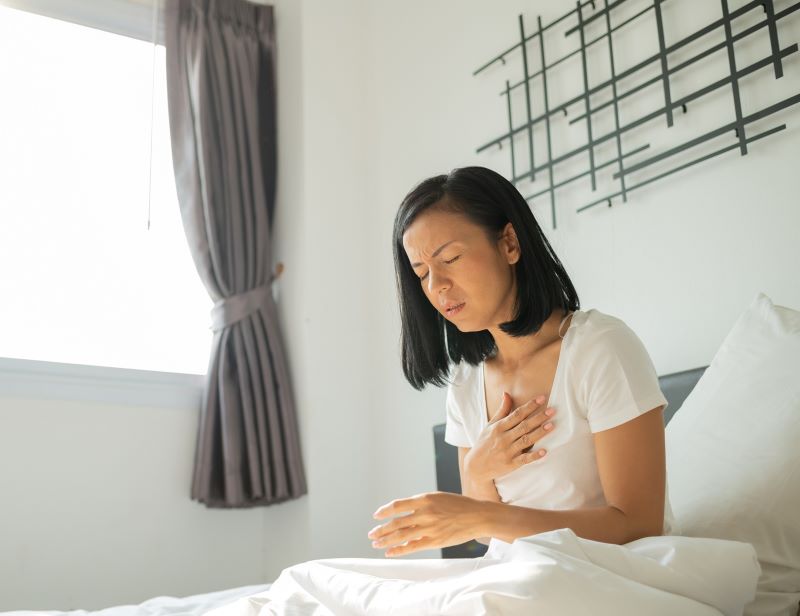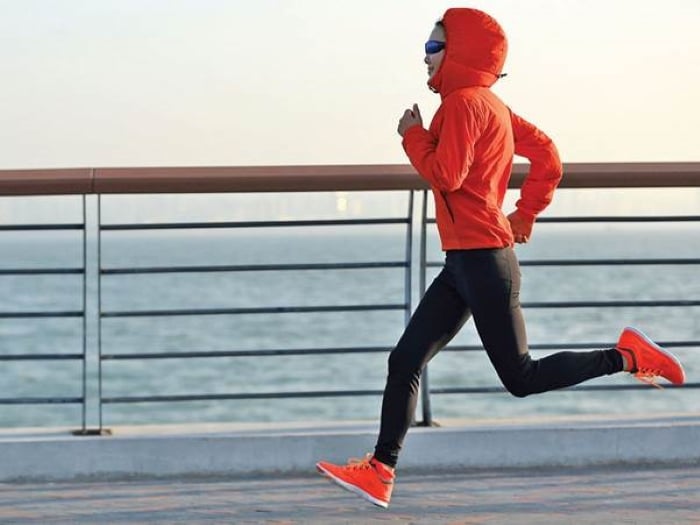Dr. Sumeet Chugh (Former Director of Cedars-Sina Heart Center) pointed out that 90% of sudden, unexpected deaths are due to cardiac arrest. There are many other health-related situations that can be treated or prevented that contribute to these deaths.
To help everyone prevent this dangerous condition, Dr. Chugh has identified 5 moments that can lead to stroke, sudden death that everyone should take note of:
1. Getting up hastily after waking up
After waking up, one should not get up hastily as it can be dangerous. According to health experts, when lying on the bed, our body is in a state of being kept warm by the mattress, and the body temperature at this time will be around 37-39 degrees Celsius.
Therefore, suddenly abandoning this warmth-keeping measure and exposing to cold air without protection, your skin will quickly experience thermal shock, blood vessel constriction. This can lead to sudden death in many cases. Especially if you are wearing thin sleepwear that does not keep your body warm.

Illustrative image
It is best to dress warmly, especially wearing socks when sleeping in cold weather. The earlier you wake up, the longer you should stay in bed for 3-5 minutes, gradually uncovering the blanket, you can stretch your muscles in bed to warm up your body, restart joints and blood vessels before slowly getting out of bed.
2. Night showers with cold water
Showering at night, especially with cold water, can cause colds and chills. If this is done continuously, over time, our lungs will be seriously damaged, leading to many complications in this organ, including pneumonia, COPD, bronchitis, asthma… and affecting health, even life if the disease develops seriously.

Illustrative image
But the harm of night showers with cold water does not stop at damaging health, but sometimes threatens our lives. Specifically, when the temperature drops at night, the blood vessels in the body contract, slowing down the blood circulation to the organs in the body, especially the brain and heart. Showering at this time will make the condition of constricting blood vessels more serious, causing high blood pressure leading to the risk of stroke due to cerebral ischemia, if not timely emergency treatment, it can cause death.
In general, no one, no matter what age, should take showers at night. If you need to clean your body before going to bed, you can use a warm towel to wipe around your body to keep it clean and comfortable. And only do this for 3-5 minutes and end it, avoid doing it for too long causing chills.
3. Exercise too early or too late
Exercise is a good thing, but you should also be careful not to “invite disaster to yourself”, especially in cold weather. According to health experts, stroke and sudden death due to exercise in cold weather mostly come from 2 reasons. One is exercising at the wrong time and two is exercising at the wrong intensity.

Illustrative image
In fact, we should not exercise early in the morning (before 5:30 am) and late at night in cold weather (after 10 pm). Because these times usually have the lowest temperature of the day, the temperature difference between outside and inside is also very high. Not to mention, if you have a habit of showering after exercise, it will be even more dangerous. It can cause thermal stroke, sudden death due to heart attack, blocked blood vessels.
Exercise is necessary but don’t overdo it because you think you need to exercise more to sweat, burn fat in cold weather. Also, do not choose to exercise in places that are too high, low oxygen levels.
4. Sitting for too long
Scientists have found that people who sit for more than 8 hours at work, do little exercise, have a 20% higher risk of developing cardiovascular diseases, and a 50% higher risk of dying from heart attack and stroke compared to people who stand to work or exercise regularly.
According to statistics, more than 15 million people worldwide have a stroke each year. In Vietnam, there are more than 200,000 cases. On average, 1 stroke occurs every 45 seconds and 1 person dies every 3 minutes. Doctors also added that the incidence of stroke in young people and office workers is increasing rapidly, with an incidence rate more than 5% higher than the annual average in this group.

Illustrative image
Blood flows from the heart to nourish the body and will return to the heart through the venous system. However, sitting for a long time can cause this process to stagnate, gradually increasing the risk of developing heart diseases, specifically angina, high blood pressure, clogging of coronary arteries, heart failure…
Not only that, people who sit for more than 6 hours a day without any movement can shorten their lifespan by up to 15 years compared to those who sit for less than 3 hours. That is why people should not sit for too long and should exercise regularly if they do not want to be in danger.
5. Brushing teeth, washing face with cold water
Many people often have a habit of brushing their teeth, washing their face with cold water because it helps them feel more awake and refreshed. However, in times of cold air like today, this is not an action to do.
Accordingly, the bathroom, the toilet is one of the most dangerous places for sudden death in cold weather. Because when brushing teeth, washing face, apart from the thermal shock, blood vessel constriction is also affected by the bending position to perform muscle and blood circulation. Instead, you should use warm mild water, then slowly let the skin feel the warmth, not rush when performing facial cleansing and tooth brushing to protect yourself.



































